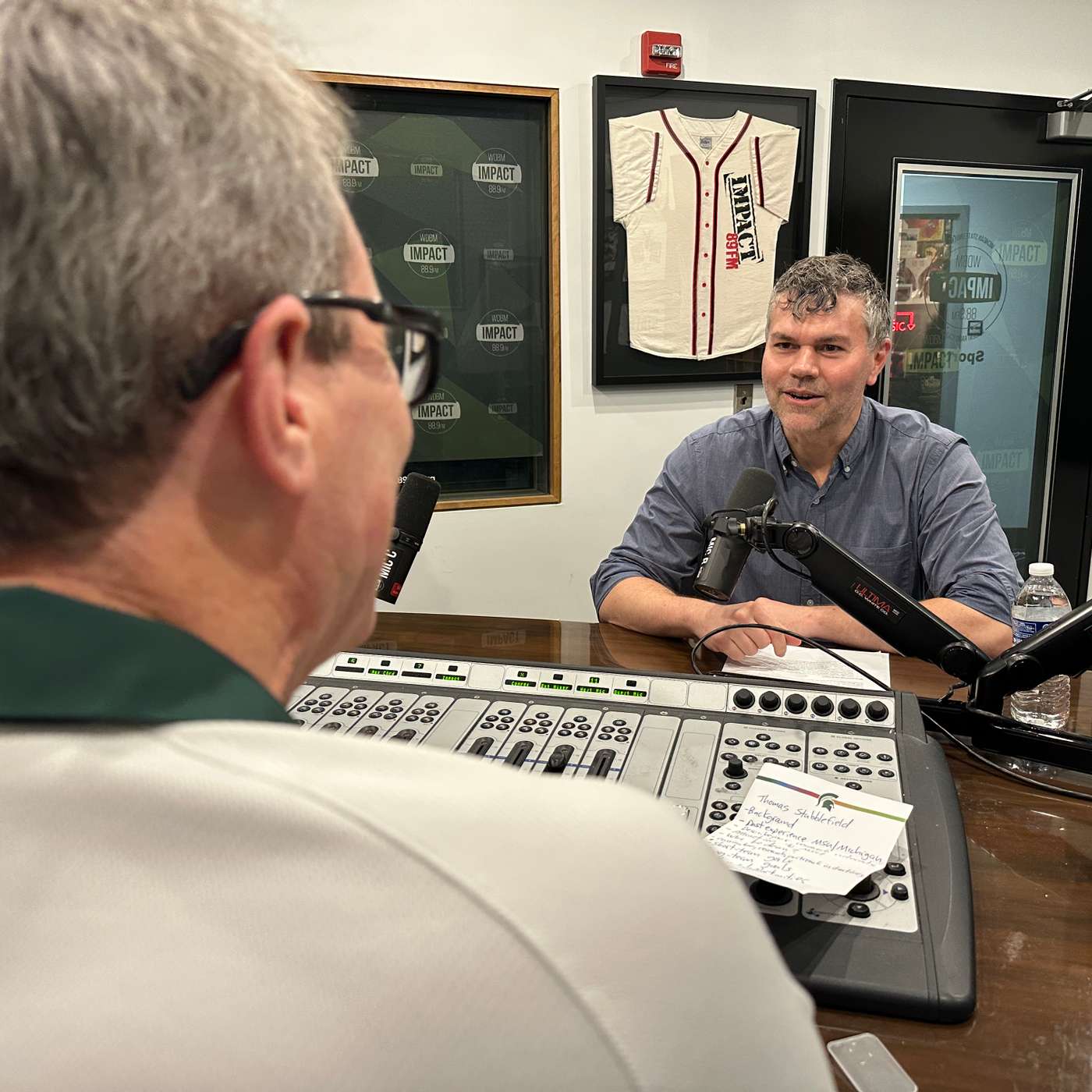

Meet the Dean: College of Arts and Letters’ Thomas Stubblefield
Thomas Stubblefield is the new has dean of the College of Arts and Letters (CAL) at Michigan State University, effective July 1, 2025.
Dean Stubblefield describes his background and research interests. He tells why he was attracted to MSU and the deanship of CAL. The dean talks about curriculum, research, and outreach activities and initiatives in the college. He talks about his short- and long-term goals for CAL, emphasizes the value of the arts and humanities, and discusses challenges and opportunities facing CAL, MSU, and higher education.
Conversation Highlights:
(0:21) - Give us some highlights from your background.
(2:16) - Do you have any experience with MSU and/or the state of Michigan?
(3:14) - Describe your research interests and scholarly endeavors.
(4:45) - What attracted you to MSU? And why do you want to be dean of the College of Arts and Letters?
(7:04) - What are some of the curriculum, research, and outreach activities and initiatives of the college?
(9:59) - What are some of your short-term goals for the college?
(11:49) - What about some longer-term goals?
(13:30) - Talk about the importance and value of the arts and humanities.
(15:01) - What are some of the challenges and opportunities ahead for the college, MSU, and higher education?
(16:40) - What are your Uncommon Will. Far Better World. campaign priorities? And talk about the importance your donors to the college’s future.
Listen to “MSU Today with Russ White” on the radio and through Spotify, Apple Podcasts, and wherever you get your shows.
Conversation Transcript:
Speaker 1:
Well, Thomas Stubblefield is the new Dean of Michigan State University's College of Arts and Letters (CAL), and it's a pleasure to welcome him to Michigan State University and MSU today. Thomas, welcome to Spartan Nation.
Speaker 2:
Thanks so much. So happy to be here.
Speaker 1:
Great to have you here to get to know you a little better. Why don't you start with a little bit of your background before you've come here to MSU?
Speaker 2:
Sure. So I started my undergraduate career as a physics major. Quickly changed to undeclared and that was sort of the perfect lens for me to explore and have new experiences as a college student. At the end of that experience, I settled on art history and film and media studies as a double major, and that pairing really kind of structured my academic journey in a lot of ways. So I did a master's in art history and then was going simultaneously to Northwestern to take classes in film and media and was approached by a faculty member who said you should really check out this new field called Visual studies. And that led me to the University of California Irvine, where I did my PhD program. It was a truly interdisciplinary experience that brought together film and media studies, art history, and then in my case, philosophy. So as I transitioned to professorship, I began to realize how much I enjoyed administrative work.
I enjoyed leading committees, putting together new initiatives, even working with budgets, and really found that it was an opportunity for me to expand the area of my impact across the institution and in the community. So I soon became director for the Office of Faculty Development at UMass Dartmouth, was associate dean for the College of Visual and Performing Arts there, and then moved to the University of Rhode Island where I was associate Dean for the College of Arts and Sciences. And that was an opportunity to work with the arts and humanities within an expanded field that included computer science, physics, criminal justice, and so on. So there was a lot of benefit in terms of understanding disciplines outside of my own, but when this job came up, it just seemed like such a perfect fit for my interest. And so that's sort of the path that led me here.
Speaker 1:
And have you had any past experience with either the state of Michigan or MSU by chance?
Speaker 2:
Not really. I will say my wife and three kids, and I have really loved the experience so far. It's such a vibrant community, shaped so much by the university. There's so many cultural events happening at any given time. It's a very family friendly place and lots of opportunities for enjoying nature. And there's parks and just green spaces to take advantage of. So it seems like a really wonderful place and a place that really supports the university. Everywhere I go and I mentioned I work at MSU, everyone has a story or a family member who's currently enrolled or as an alumni, and it's just a really nice feeling to feel that support in the community.
Speaker 1:
And how many times were you, did someone say Go green before you knew to say Go white? Beth probably taught you that right away then. Yeah, exactly. But say a little more about your own research interests and the scholarly activities you enjoy and will you have to put 'em on the back burner for a while maybe if you're dean now?
Speaker 2:
Yeah, absolutely. So my research area is pretty broad and diverse. I usually say I work in contemporary visual culture, which means any kind of visual media. I think the work that I was most excited about, and you're right, I don't get to do as much of it now, but was working across the aisle with multiple disciplines. I've collaborated with faculty in criminal justice to do conference presentations. I did a research fellowship on a botanist who was attempting to visualize smell, and that botanist was collaborating with a photographer. So I did a deep dive into their work. So it's those kinds of collaborative interdisciplinary projects that really attracted me. And I produced two books. The first was nine 11 and the Visual Culture of Disasters published by Indiana University Press. And the second was a book on drone art War as Everyday Medium. And that really looked at the way that drones were depicted in film, media, television, gallery art, and also the way they were used as media for the creation of art and so on. So a really diverse approach. I enjoyed that work very much, but I find myself pretty occupied with administration these days.
Speaker 1:
Thomas Stubblefield is my guest on MU today, the Dean of MSU’s College of Arts and Letters. So Thomas, what attracted you to MSU? Kind of a two-part question, and why do you want to be the dean?
Speaker 2:
Yeah. MSU has such an international reputation of research excellence, of innovative research coupled with emphasis on student success. And I think that's rare. That's a very difficult combination to maintain. I think one of the things that really struck me in regard to the latter, that emphasis on student success was MSU is not a gatekeeper in terms of keeping out students. We have a high acceptance rate relative to our peer institutions, but we also have a high success rate and a high retention rate, which means we fully support the students in their journey with us and make sure that they're led toward that succes...
More Episodes
All Episodes>>Create Your Podcast In Minutes
- Full-featured podcast site
- Unlimited storage and bandwidth
- Comprehensive podcast stats
- Distribute to Apple Podcasts, Spotify, and more
- Make money with your podcast












